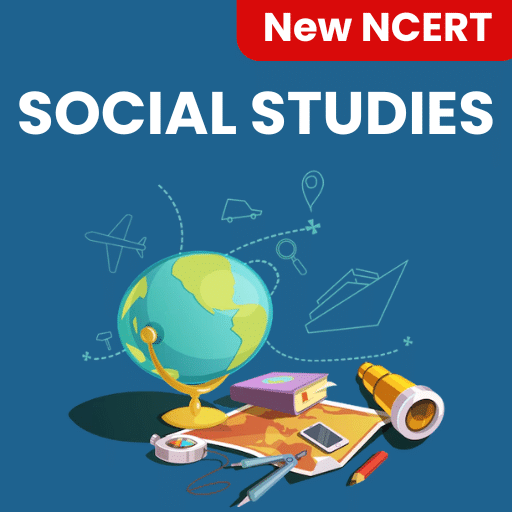Class 9 English Chapter 10 Extra Question Answers - The Seven Ages
Read the given extracts and answer the questions that follow:
Q1. In fair round belly with good capon lined, With eyes severe and beard of formal cut, Full of wise saws and modern instances.
(а) Which stage of life has been described here by Shakespeare?
(b) What are the features of this stage?
(c) Explain the last line. (CBSE2014)
Ans. (a) Here Shakespeare describes the fifth stage of life, that is, of justice.
(b) In this stage, man enjoys prosperity, self-satisfaction, and wisdom. He is fashionable. He has stem looks.
(c) At this stage, man is full of wise sayings and examples from contemporary life. He impresses others with his knowledge and wisdom.
Q2. All the world’s a stage And all the men and women merely players : They have their exits and their entrances; And one man in his time plays many parts, His acts being seven ages.
(а) What is the world compared to?
(b) Exits and entrances mean ………….
(c) What do you mean by ‘acts’ in the last line?
Ans. (a) The world is compared to the stage of a theatre.
(b) deaths and births.
(c) ‘Acts’ in the last line mean roles which a person enact in his life-time.
Q3. At first the infant Mewling and puking in the nurse’s arms.
(а) Which stage of life is being referred to here?
(b) What are the characteristics of this stage?
(c) Give the meaning of ‘mewing’.
Ans. (a) The stage of life described here is infancy.
(b) At this stage an infant is helpless and dependent.
(c) ‘crying’
Q4. Then the whining schoolboy, with his satchel And shining morning face, creeping like snail Unwilling to school.
(а) What is the school going by described as?
(b) How does the schoolboy walk to school?
(c) Which simile has been used here?
Ans.
(а) The school-boy is described as unwilling to go to school.
(b) The schoolboy walks very slowly like a snail while going to school.
(c) ‘creeping like snail’.
Q5. And then the lover Sighing like furnace, with a woeful ballad Made to his mistress’ eyebrow
(a) Is the lover described happy?
(b) How does he behave?
(c) Which figure of speech has been used in the first two lines here?
Ans. (a) No. He is not happy. He is sorrowful.
(b) He sighs and writes sad verses in praise of his beloved’s beauty.
(c) It is a simile. It also acts as an image.
Q6. Then a soldier, Full of strange oaths, and feared like a pard, Jealous in honour, sudden and quick in quarrel, Seeking the bubble reputation Even in the cannon’s mouth.
(а) What is the soldier ready to do?
(b) What is the poetic device used in the second line?
(c) What does ‘bubble reputation’ mean?
Ans. (a) The solider is ready to die for name and fame.
(b) It is a simile.
(c) It means that reputation is as short-lived as the life of a bubble.
Q7.The sixth age shifts Into the lean and slippered pantaloon, With spectacles on nose and pouch on side. His youthful hose, well saved, a world too wide For his shrunk shank; and his big manly voice, Turning again toward childish treble, pipes, And whistles in his sound
(а) What does the phrase ‘shrunk shank’ in this stanza mean?
(б) How is the voice of a man at this stage?
(c) What stage of a man’s life is referred to in these lines?
Ans. (а) It means that his legs become weak and thin.
(b) The voice of a man at this stage becomes shrill like that of a child,
(c) It is the sixth stage of man’s life.
Q8. Last scene of all, That ends this strange eventful history, Is second childishness and mere oblivion, Sans teeth, sans eyes, sans taste, sans everything.
(a) What is man’s condition in the last stage of life?
(b) What do you mean by ‘sans’ ?
(c) What does ‘second childishness’ mean?
Ans. (a) Man is very old and dependent in the last stage of life.
(b) It means ‘without’.
(c) It means that man is helpless like a child.
SHORT ANSWER QUESTIONS (SOLVED)
Answer each of the following questions in 30-40 words.
Q1. What is the significance of the words ‘entrances’ and ‘exits’ in the poem ‘The Seven Ages’? (CBSE 2014)
Ans. Human life has been compared by the poet to a stage of theatre where actors, appear, enact their roles and quit. ‘Entrances’ here signify human births and ‘exits’ deaths. Human beings take birth, play their parts and die.
Q2. Explain ‘mewling and puking’ in the nurse’s arms. (CBSE 2014)
Ans. The infant cries and vomits milk in the arms of his nurse. He can do nothing but cry to express his needs. He is totally helpless and dependent.
Q3. Why does a man in his life play many parts? (CBSE 2014)
Ans. A man is fated to play many roles in his life. As he grows, his role changes and his character also changes accordingly. He takes birth only to play different roles-the roles of an infant, a school boy, a lover, a soldier, a judge, an old and senile person.
Q4. Describe the second stage of life as elaborated by Shakespeare in the poem ‘The Seven Ages’. (CBSE)
Ans. The second stage of life is the school-going age. The schoolboy sulks as he does not want to go to school. He walks to school as slowly as a snail. He has, of course, a bright face, like that of a sunny morning.
Q5. Explain the first stage of human life. (CBSE 2014)
Ans. Infancy is the first stage of human life. An infant cries and vomits milk in the arms of his nurse. He is helpless and dependent.
Q6. What characteristics would you associate with the stage of a soldier?
(CBSE 2014)
Ans. Energy, enthusiasm, rashness, and patriotism are some of the characteristics of a soldier. A soldier can sacrifice even his life for short-lived reputation.
Q7. Explain the line ‘the lean and slippered pantaloon’. (CBSE 2014)
Ans. The line reveals that in the sixth stage of life, man becomes quite lean and thin. He wears slippers. He looks like a funny old man in his loose clothes.
Q8. Explain the stage of justice. (CBSE 2014)
Ans. The stage of being a judge is perhaps the best. At this stage, man is prosperous and well-fed. He looks stern and impressive. He is full of wise sayings and examples from contemporary life to prove his point.
Q9. Compare the sixth stage with the seventh stage. (CBSE 2014)
Ans. The sixth stage is that in which man becomes old, weak and thin. In his loose clothes, he looks funny. In the seventh stage, he becomes senile. He enters into ‘second childishness’. He is as dependent upon others as a child. He has no teeth, no sense of taste and loses every mental faculty.
VALUE-BASED LONG ANSWER QUESTIONS (SOLVED)
Q1. If human life is nothing but a ‘tamasha’, what message does the poet want to convey to us?
Ans. Shakespeare, through one of his characters Jaques, wants us to realize the fact that human life is like the stage of a theatre. Men and women, like actors, come, play their roles and quit. Each stage of life has its own peculiarities. Nothing good and charming remains for long. The same man who looks charming and dashing looks weak, thin and funny in old age. Then why should we take life seriously? Why should we sulk and complain? We should accept our fate humbly. We should be ready to play our role on the stage of life to quit forever. Nothing in this world is permanent. Nothing is in our hands.
Q2. Describe in brief the seven stages in man’s life.
Ans. Shakespeare conveys through his character Jaques, that human life can be divided into seven stages. The first stage is that of an infant who is totally helpless and dependent. Then the second stage is that of the school-going boy. He is unwilling to go to school. In the third stage, a man plays the role of a lover who heaves deep sighs in the absence of his beloved. In the next stage, he is an energetic, rush soldier who is ready to sacrifice even his life for short-lived reputation. In the fifth stage, he plays the role of prosperous, well fed judge. He shows off his wisdom and knowledge to impress others. Then in the sixth stage, he is a weak, thin old man. He looks funny in his loose clothes. The last stage is that of senility when a man becomes childlike. He loses his reflexes and senses. Thus, ends the drama of his life.
|
119 videos|684 docs|84 tests
|
FAQs on Class 9 English Chapter 10 Extra Question Answers - The Seven Ages
| 1. What is the poem "The Seven Ages" about? |  |
| 2. Who wrote the poem "The Seven Ages"? |  |
| 3. How many stages are mentioned in the poem "The Seven Ages"? |  |
| 4. What is the significance of the "mewling and puking" stage mentioned in the poem? |  |
| 5. What is the message conveyed by the poem "The Seven Ages"? |  |
































